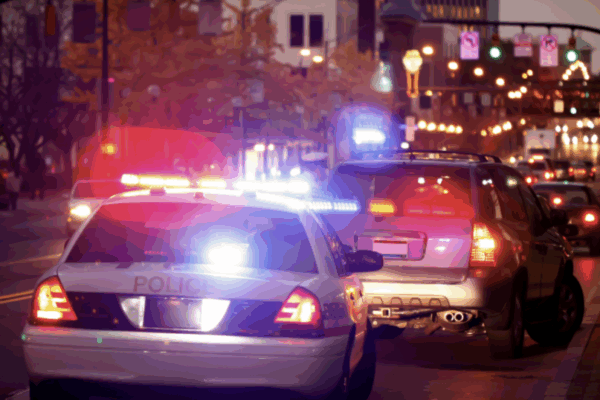A little over a month ago, President Trump enacted one of the most intensive crackdowns on immigration that we’ve seen in recent history. As whispers of ICE raids in the metro become more frequent, the lives and safety of both legal and undocumented immigrants are jeopardized. After a confirmed raid at a restaurant in Liberty, local tensions are high.
As Guantánamo Bay becomes an unethical, temporary home to immigrants, and Panama continues to accept planes full of deportees from major US cities, the anxiety grows as Kansas City locals fear our city will be deeply impacted next.
The American Civil Liberties Union (ACLU) in both Kansas and Missouri have been following recent events and have worked to compile documents to aid our community. The ACLU is a historical union that works to defend the individual freedoms of Americans.
As local law enforcement trains to assist ICE and rumors of more raids flood the metro, it’s becoming increasingly important to know your rights. Here are some important recent changes to ICE laws:
According to the Kansas ACLU, “As of January 2025, ICE will no longer consider certain “sensitive” locations as off-limits for enforcement actions, such as schools, places of worship, healthcare facilities, and more.”
“Although ICE can attempt enforcement in these locations, they still cannot access non-public areas unless, 1), they have a judicial warrant signed by a judge (not just an administrative DHS/ICE order) or, 2), someone who reasonably appears to have authority over the property gives ICE permission to enter. This also applies for access to school, employment, administrative, or other records.”
These follow President Trump’s executive order on immigration enforcement, signed on Jan. 20. For the whole list, visit the websites of ACLU Kansas and Missouri.
The ACLU Kansas and Missouri work with Advocates for Immigrant Rights and Reconciliation (AIRR)—a Kansas City-based organization that specializes in advocating for immigrants across the metro, working to ensure that immigrant rights are upheld locally.
Kayla Juarez, a representative from AIRR, has seen firsthand how this executive order is impacting our community. “Families are being torn apart and people’s lives are changing from one day to the next. And the trauma—There’s lots of fear and anxiety about different changes happening, and it’s sort of hard to keep up for people. I think that those are the biggest impacts.”
AIRR works with immigrants who are pursuing obtaining visas, work in immigrant advocacy in both Missouri and Kansas, as well as offers immigrants the opportunity to have a volunteer accompany them to visa appointments. Since the executive order, Juarez has seen a shift in not only her interactions with the people she works with, but also in how often she has them.
“I’ve met a man personally who said he hasn’t left his home for 10-plus days because of the fear,” Juarez says. “I was also in a public town hall meeting, and I heard this testimony about a woman who was experiencing a heart attack and refused to get on the ambulance because she was afraid that they were going to take her somewhere else.”
Over the years, AIRR has worked hard to pass legislation to protect immigrants, such as the ‘Safe and Welcoming Act’ in Wyandotte County, and are currently working to remove language from the Missouri Budget Bill that prevents non-citizen students from accessing in-state tuition. As they fight to remove this language, though, attendance across the metro is declining due to growing fears of deportation.
“We’ve heard from school districts that attendance is down by a large percentage, and a lot of that is due to fear as well,” Juarez says. “It’s impacting children in their education. It’s also an impact in commerce. People are not going out and spending money. People are not going out and working either. It’s just the fear.”
Kansas City faces a unique predicament, as the city expands across two separate states with different laws. According to Juarez, Missouri residents may have a little more to be wary about regarding ICE.
“When Governor Mike Kehoe came into office this year, he signed an executive order as the governor of Missouri to instruct the Missouri Highway Patrol to work with ICE to enter into an agreement with federal law enforcement—ICE agents to work together with the Missouri Highway Patrol,” Juarez says. “We haven’t seen or heard of the Kansas Highway Patrol collaborating with ICE; Although, on the Kansas side, there was just a release from KBI, the Kansas Bureau of Investigation, saying that they will work with them.”
As dialogue on how to actively push back against ICE snowballs on social media, Juarez warns allies not actively interfere with ICE raids or arrests.
“It could essentially make it worse for that person being arrested in their case, because they might have a possibility to fight the case or not,” Juarez says. “We don’t know the details… it could be bad for the person.”
The best way to help: documentation and information.
“If you do witness an ICE arrest or just an interaction, verify and take video, because people have rights under the First Amendment to record the police,” Juarez says.
It is on us to do our part to stop the spread of misinformation and distribute resources to help our neighbors and our community. Whether you’re an ally, an immigrant, or still working to get your visa, the best form of defense at the moment is education.

